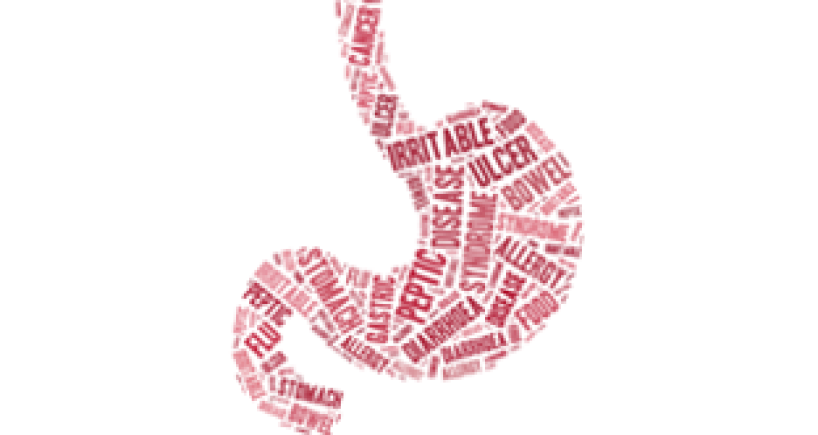
Gastroenterology and Hepatobiliary Sciences
Get Rid of Stomach Troubles
Get Rid of Stomach Troubles Nov 18, 2014
 Constipation is a common problem. Almost everyone gets constipated at some time during his/her life. It occurs when bowel movements become difficult or less frequent. There is no set standard of healthy bowel movements. The frequency of bowel movements varies person to person from several times a day to several times a week. Infrequent bowel movements or stool that is difficult to pass are symptoms of constipation. Constipation occurs among all ages. However, this condition is more common among the elderly.
Symptoms
Constipation is defined as the presence of at least two of the following symptoms for a time span of at least three months:
• Straining during bowel movements
• Hardening of stools
• Incomplete evacuation
• Less than two bowel movements per week
• Feeling as if you can’t completely empty the stool from your rectum
• A swollen abdomen or overall abdominal pain and vomiting
Causes
Dietary factors such as low fiber intake and inadequate water intake have a major role in initiating constipation. Other factors that influence constipation include, lack of physical activity, poor bowel habits and use of certain medications. Medical conditions such as diabetes, colorectal cancer and hypothyroidism also lead to constipation. In some cases, lack of good nerve and muscle function in the bowel may also be a cause of constipation.Also, after a person undergoes a surgery such as a gastric bypass surgery, that is a surgery of stomach, the person starts suffering from constipation.
Other influential factors that may cause constipation include:
• Stress
• Pregnancy
• Depression
• Eating disorders
• Large consumption of dairy products
• Use of pain medications, narcotics, antidepressants and iron pills
Treatment
For some patients, however,constipation is a sign of a larger, more serious medical problem such as colon cancer. If your constipation is a long-term problem then your physician may recommend a colonoscopy. Other than a colonoscopy, your physician may recommend a blood test to evaluate factors that have an impact on your digestion process and ensure that there is no obstruction in your colon. If your constipation is a symptom of a more serious condition such as the presence of polyps or colon cancer, then early detection and treatment is extremely important.Managing constipation also includes lifestyle changes. A balanced diet full of fibres, fruits and vegetables along with 8-10 glasses of water every day and moderate exercises can do wonders.
Constipation is a common problem. Almost everyone gets constipated at some time during his/her life. It occurs when bowel movements become difficult or less frequent. There is no set standard of healthy bowel movements. The frequency of bowel movements varies person to person from several times a day to several times a week. Infrequent bowel movements or stool that is difficult to pass are symptoms of constipation. Constipation occurs among all ages. However, this condition is more common among the elderly.
Symptoms
Constipation is defined as the presence of at least two of the following symptoms for a time span of at least three months:
• Straining during bowel movements
• Hardening of stools
• Incomplete evacuation
• Less than two bowel movements per week
• Feeling as if you can’t completely empty the stool from your rectum
• A swollen abdomen or overall abdominal pain and vomiting
Causes
Dietary factors such as low fiber intake and inadequate water intake have a major role in initiating constipation. Other factors that influence constipation include, lack of physical activity, poor bowel habits and use of certain medications. Medical conditions such as diabetes, colorectal cancer and hypothyroidism also lead to constipation. In some cases, lack of good nerve and muscle function in the bowel may also be a cause of constipation.Also, after a person undergoes a surgery such as a gastric bypass surgery, that is a surgery of stomach, the person starts suffering from constipation.
Other influential factors that may cause constipation include:
• Stress
• Pregnancy
• Depression
• Eating disorders
• Large consumption of dairy products
• Use of pain medications, narcotics, antidepressants and iron pills
Treatment
For some patients, however,constipation is a sign of a larger, more serious medical problem such as colon cancer. If your constipation is a long-term problem then your physician may recommend a colonoscopy. Other than a colonoscopy, your physician may recommend a blood test to evaluate factors that have an impact on your digestion process and ensure that there is no obstruction in your colon. If your constipation is a symptom of a more serious condition such as the presence of polyps or colon cancer, then early detection and treatment is extremely important.Managing constipation also includes lifestyle changes. A balanced diet full of fibres, fruits and vegetables along with 8-10 glasses of water every day and moderate exercises can do wonders. 
















